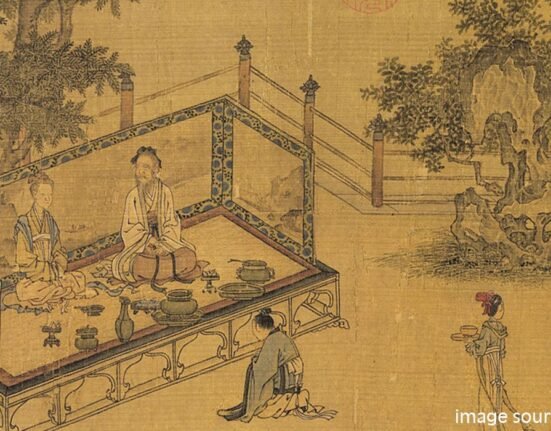The ability to make choices without the fear of repercussions. A state where a person doesn’t feel shackled by the customs of life. He who is free from diabolical emotional clusters. Freedom can also be looked at ‘choosing to live’, rather than ‘having to live’. We are as free as we choose to be. It is our intrinsic right and the ability to act, think, write and speak without the fear of coercion. Daniel L Boorstin, an American historian rightly said, “Freedom means the opportunity to be what we never thought we would be”. In the most spartan terms, freedom gives us the opportunity to become something unanticipated from what we originally imagined for ourselves.
For example, Imagine a teenager who, as a child, dreamed of becoming a chef because his family owned a restaurant. In a free society, a young man may develop a passion for astronomy and decide to become an astronaut, against his family’s customs. Freedom here is an opportunity for young people to be unexpected and break the stereotype of being a chef.
Significance of Freedom in Human Psychology
The psychology of freedom investigates the sort of mind required for such freedom of action. It aims to understand what talents and mental states we require to be free to behave differently than we do now. It focuses on the sort of will that a free agent must have. By will, I mean the capacity to predict how we will act via decision-making, resulting in an intention regarding the activities we will perform.
Also Read: The psychology behind different personalities
When a person is given the freedom to choose, anxiety is generated on autopilot, which leads to a rattled choice. Giving in to your froward desires will make you move away from the struggles that legitimacy of yourself demands. As a consequence, you’ll end up on a path of despise, of who you’ve become. That is, if you do not know how to operate the steering wheel of free will, you will end up in the pit of anguish. The linkage between freedom of free will and mental wellness may exist because they place more impulsion on a person’s will.
When individuals voluntarily make choices and decisions that are aligned with their values and morals, they will experience intrinsic motivation, wholeness, and improved psychological well-being.
Conflict Between Personal Values and Professional Demands:
The cognitive dissonance theory, developed by Leon Festinger in 1957 advocates that, when individuals hold on to conflicting inner beliefs/attitude, they experience discrepancy or dissonance. Conceptualize a person who strongly values independence and personal freedom. They believe that every single human should possess the right to make their own choices and live their lives in accordance to their fondness. Nonetheless, due to workplace demands, the person finds themselves in a gig, which requires stringent adherence to their regulations, limiting personal autonomy.
In this conception, cognitive dissonance occurs when there is a conflict between the person’s values and their job position.
Also Read: Top 10 Books to Read for Self Care
The Paradox of Choice
A psychologist who goes by the name, Barry Schwartz’s, proposed the Paradox of Choice Theory in his book, “The Paradox of Choice: Why More Is Less.” Schwartz suggests that while having choices is generally good, an excess of choices leads to discord and decision paralysis. He contends that more choices, not only generate anxiety, but also a general sensation of overload.
There is a need to strike balance between variety and simplicity. This capability enables a person to make choices without being inundated. Navigating decisions ultimately helps us find the sweet spot of optimal freedom. Not every decision needs extensive consideration, sometimes listening to your gut can contribute to a less stressful and liberal life.
Societal Constructs and Perceived Liberties
In social circumstances, how people engage in groups, conform to cultural standards, and shape their identities is inextricably linked to the psychology of freedom. Societal constraints can inherently limit individuals’ freedom. This stint most of the times leads to various psychological setbacks, such as resentment and a sharp decline in self-esteem.
Societies that value individual freedom can foster a pleasant psychological environment. People feel understood, affirmed, and capable. As a result, this individual agency of positive reinforcement promotes a sense of social cohesion, in which individuals feel a shared sense of connection and obligation to one another.
Also Read: What is Existentialism?
In a nutshell, the psychology of freedom in our social settings is like a delicate dance between feeling stuck and empowering environments. Envision it as a balancing act in understanding how out social structures and liberating surroundings impact how we think and feel.
Psychological Benefits of Empowered Choices
Who doesn’t like feeling empowered after making certain decisions? Well, taking empowered decisions has it’s own rewards. Some of them are:
- Greater sense of control
- Elevated confidence
- Positive self-image
- Reinforced self esteem
- Lower cortisol levels
The Symphony of Freedom
In wrapping things up, the entire with the psychology behind freedom is like an intricate dance of cognitive and social factors. Experiencing freedom amplifies intrinsic motivation. It can also be tricky to navigate through the pitfalls of abundance of choices. Finding the sweet spot, the balance, is where the real freedom comes into the picture. The secret sauce for personal growth is understanding the ins and outs of freedom.
Also Read: Permissive Parenting: Its Approach and Impact on Child Development
Igniting a sense of purpose, freedom is the invisible force propelling us forward. It’s like the sunshine for the soul. Navigating the symphony of freedom requires understanding when to introduce new harmonies and when to let certain notes linger, almost like a skillful conductor. As individuals continue to waltz through the path of freedom, thorough understanding of its psychological components serves as a compass. Practicing gratitude diminishes the power of negative emotions, helps us break free from being ungrateful and appreciate our own unique journey. It acts as a psychological Catalyst for Freedom, giving a sense of liberation .
Freedom is profound internal landscape and not merely a state of external circumstances. In essence, the psychology of freedom is our manual to orchestrating a unique life filled with fostering psychological and physiological well-being.













Leave feedback about this